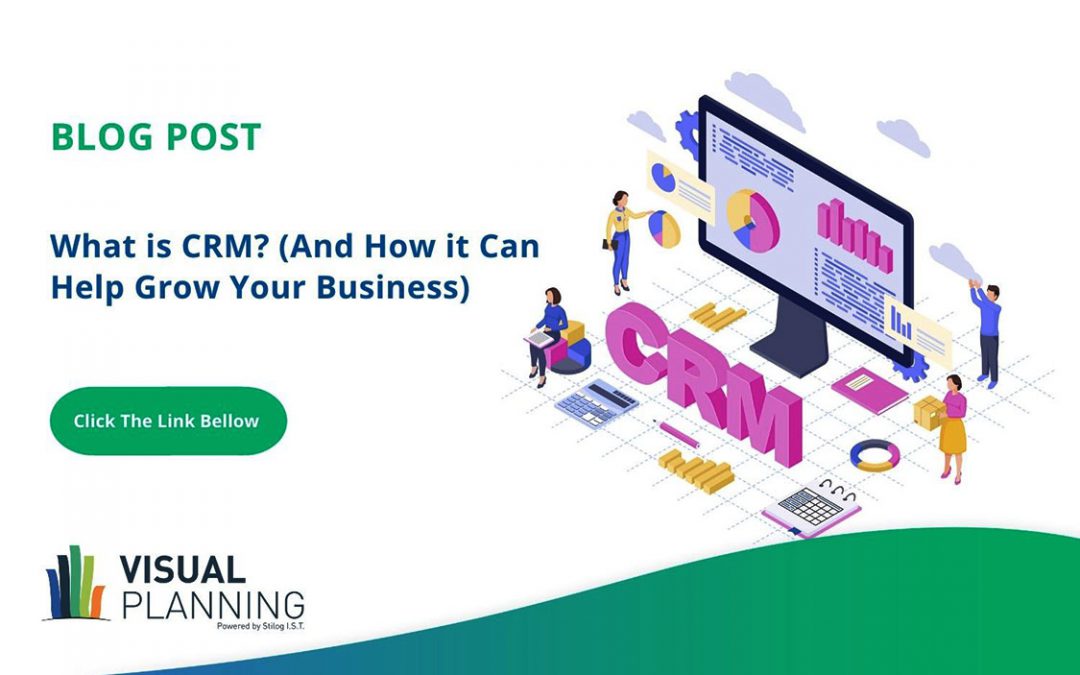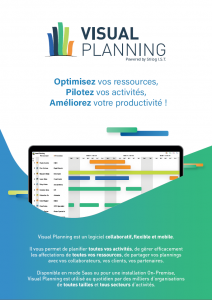The experience of your customers is as important as it gets. A positive customer experience drives word-of-mouth marketing, creates loyalty and boosts your bottom line. Businesses that have a customer-centric mindset and invest in customer experience have 4 to 8% higher revenues on average than competitors in the same industry.
Customer relationship management (CRM) is one way you can invest in your clients and help grow your revenues. Find out more about this critical business process and how you can support it with the right technology products below.
What Is CRM?
Some people say that CRM is specifically the technology used to manage customer experience or cycles, but it’s bigger than that. It actually refers to all of the resources you use for this purpose, including processes, people, strategies and technology tools such as software solutions.
The goal of CRM and all the tools and strategies that are a part of the process is to provide a seamless, enjoyable customer experience for clients. From the first contact (which might be a phone call, visit to a website or visit to a physical store) to the follow up after a sale or service call, CRM processes are aimed at ensuring customer satisfaction and increasing the likelihood someone will recommend a business and return to that business themselves in the future.
What Is CRM Software?
CRM software is a specific technological tool that helps you bring proven and customized CRM strategies to life. Some common features of CRM solutions include:
- Customer data storage, including customer behaviors and past buying journeys
- Analytical tools that help turn that data into decisions or automated processes to support the customer journey and experience as well as find and market to new consumers
- Communication tools to enhance marketing efforts and develop relationships and community with consumers
- Integrated support for sales, service and other business processes dealing with the consumer
- The ability to ingest data from disparate sources, including marketing and ad technologies, to support a holistic customer journey seamlessly
Customer relationship management software comes in a variety of types, including both on-premises and cloud-based options. You can also find solutions that easily integrate into existing technologies, such as field service software, ecommerce platforms and marketing and ad technologies.
What Type of Company Should Invest in CRM?
Do you have customers? Then a CRM solution might be right for you. It’s as simple as that.
The ability to scale and customize these solutions makes them appropriate for almost any type of business or organization. And since it supports all parts of the process — including marketing, sales and customer retention — the software can be an intelligent business investment when used the right way.
When people use a phrase such as “customer relationship manager,” others typically envision retail and sales organizations. Businesses that sell B2C and B2B goods obviously need to manage their client and consumer relationships, including marketing, the sales cycle, loyalty programs and even shipping and follow up.
But CRM isn’t limited to use in retail and sales fields.
Here are just a few industries where this technology can be used:
- Banking and finance, where organizations must work to develop trust relationships with clientele. CRM can help support communication for those relationships as well as efforts such as integrating client self-serve options with other processes.
- Health care, where trusting relationships are equally important. CRM software may be able to integrate with ERM software to support communication with patients, appointments and records management and compliance with treatment recommendations.
- Field service organizations, such as home improvement companies and construction contractors, which can use CRM software to follow up on service calls, manage maintenance contracts and support customer satisfaction.
The Advantages of Customer Relationship Management Systems
The obvious benefit you’re looking for when you invest in a CRM solution for your business is a better overall customer experience. But these technologies offer numerous advantages:
- Connect departments and processes. If your company operates as a bit of a hub, with each area in its own silo on the wheel, customer experiences can become disjointed. The act of transferring a client from customer service to billing or from sales to fulfillment may not be seamless, and that’s bad for everyone. It’s frustrating for customers, confusing to staff and costly to your bottom line. A holistic integration of a CRM system helps bring all those parts of the wheel together so the entire thing turns smoothly and customer needs can be met by everyone working together.
- Proactively manage leads. Good CRM tools offer the ability to ingest, store and analyze customer data, putting your organization in a great position to identify leads and work more efficiently to convert them. You can capture leads from your website, for example, and pass them through analytical processes to identify which ones sales should follow up on. You can also use behavioral metrics for leads and existing customers to provide personalized recommendations and offers. Those are more likely to convert, but they also help the consumer feel well cared for.
- Drive various revenue-boosting. When you have one place to turn to for information, communication and processes, your customer support is typically going to be faster and more accurate. And when customer service is better, profits usually see a bump as well. But that’s not the only way a CRM can help drive up your revenue. The cross-selling and upselling opportunities inherent to a good CRM help you increase the value of every customer over their lifetime with your business.
- Enhance your workforce. If you invest in a cloud-based option, you can hire people in different locations without worrying about load balancing on your customer service system. People from all your locations — or even those working from home — can access everything they need in one cloud-based system and complete work to assist customers or handle anything else necessary for the job.
Tips for Choosing a CRM Solution
Despite their many advantages, CRMs aren’t magic, of course. You can’t wave the CRM wand, install any old solution and sit back to reap the rewards. The best benefits come when you pick a solution that’s right for you and work (alongside the vendor) to implement it.
Here are some tips for selecting a CRM system that will work for you.
- Know what you need it to do. CRM covers a wide range of functions and needs, and not all CRM solutions are the same. Make sure you know what you’re looking for and how you want to implement the software so you can effectively evaluate your options.
- Ask about integrations. A CRM does a lot, but it might not be the only technology solution you have or need. You may, for example, require an ecommerce platform to sell your goods online. Make sure you choose a CRM that integrates with your other systems.
- Understand pricing structures. Are you paying outright for an on-premises software your technology department will oversee from here on out? Or are you buying per-user licenses to a cloud-based solution? Those are only two of the many pricing models that exist, so be sure to understand all the fine print before you make a business decision on a CRM.
- Ask about support. How much support does the vendor offer during and after integration? Will it walk alongside you through an implementation project or provide training (or training materials) for your staff? Can you reach out afterward with questions, and through what channels? Some vendors offer email or chat-based support, for example, while others may offer phone and email support. Make sure the support options align with the needs of your company.
If you’re ready to learn more about how a CRM can help your business, contact Visual Planning today. We can set up a free demo and tell you more about how we support our clients as they implement and use our technology.
Manale is a passionate about digital marketing. She joined STILOG I.S.T in 2018.
She brings SEO & SEA expertise, email marketing and creative content marketing to create a great brand experience for Visual Planning customers.



